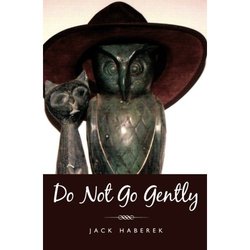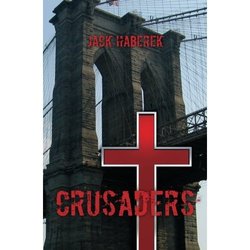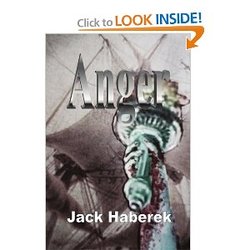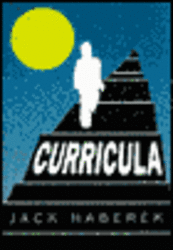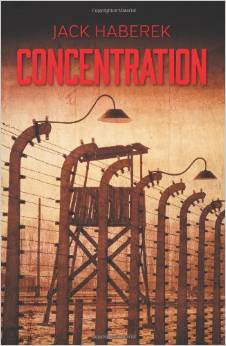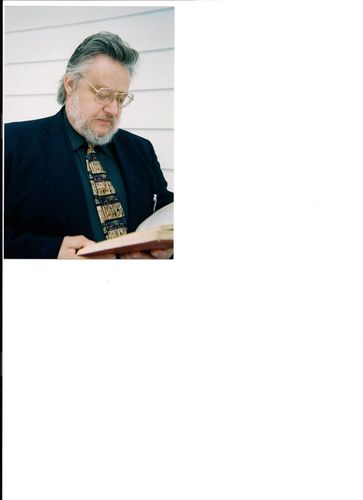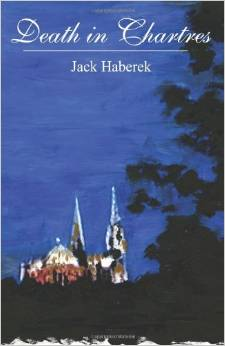Jack Haberek's bookshelf
Fiction
I welcome you reader to share our memories we may have in common from yesterday's paper or TV news, or from forty years ago or four hundred... they all have one thing in common: a man - entangled into a web of events he did not create, not even influenced in many cases, and yet, with all he's got, trying to understand, to stop time, anyhow, and get a glimpse, prolonged, extended, careful... And you too can get that glimpse at any of these books (and all of them) at amazon.com or barnsandnoble.com, where they are available as classical books made of paper as well as E-books (Kindle).
Do not go gently
Do not go gently (into that good night) - are the words by great poet Dylan Thomas, so well known today that they seem a cliche. Author here uses them to tell his reader to wake up, leave the general apathetic attitude and fight for our world that is faster and faster whirling before disappearing down the drain. Integrity and friendship, curiosity seeking new aspects of the world we live in, loyalty and respect for values they grew up in, as opposite to the people who are supposed to represent us... and - astonishingly - don't. A true portait of our times.
Crusaders
Anger
Old obsessions – politics, lies, everyday life and not everyday’s hobbies – shown to us in the context of artistic diversion bordering on schizophrenia. Through the nature of a sick artist author analyzes transformation mythology undergoes in the modern world. He uses Dr. Faustus myth, as created by Marlow, as his requisite, digested by the psyche of his hero — out of which his characters emerge; in modern, today’s
Silhouettes in the night
In ‘Silhouettes’ Haberek gives a portrait of deception — in a modern society (
Curricula
“Curricula” are author’s shot (in three short stories; from realism, through, parodied, ‘French school of looking,’ to, also, a parody of vorticism) at creating formal definitions of literature within what were the clearest influences on author’s own esthetics during his life. What is writing? Why does a man write a book? And – on the other hand – what is listening to a story? Why story telling is as important as it is? Author slowly ‘maneuvers’ the development of his narrative about writing towards the anthropological definitions – leave the world you know, go visit (go find your father, as Athene says to Telemachus), and then come back to tell us about it. “Curricula” has been the most misunderstood and misinterpreted of Haberek’s works so far — everybody has seen ‘Curricula” as three separate short stories and nothing further. Wrong.
Concentration
The story is that of betrayal, violation of friendship and love in today's world. Anyone can be suspect under the Patriot Act, which makes a system that would like to call itself 'democratic' no diffrent from the worst cases of totalitarian regimes known in the history of mankind. The main character, framed by his former friend, is deported cfrom the US to Rumania, where he ends up in a concentration camp, tortured and deprived of his civil rights. Those who finally found out that Jack was innocent, do nothing. Afraid of embarrassement, they keep silent. Hopeless and stripped of any sense, Jack is liberated by a global event, when a black hole moving at incredible speed through space approaches Earth and destroys half the planet. Jack escxapes his prison and walks through a crippeled world, discovering that, as one of this author's favorite once said: "a true life, life in the end discovered and explained, the only life, hence, simply lived thjrough, that's literature." Drowing on a massive body of learning that ranges from phylosophy to theology, science and art history, the author creates a story that is a conglomerate of human knowledge reflecting the problems Western Culturer faces today.
About author
